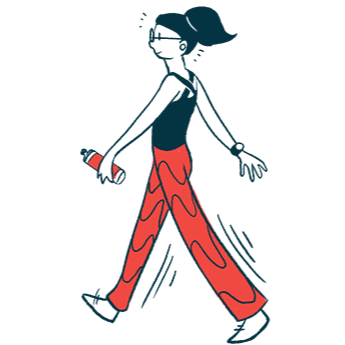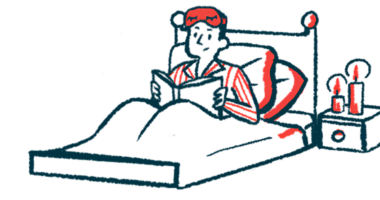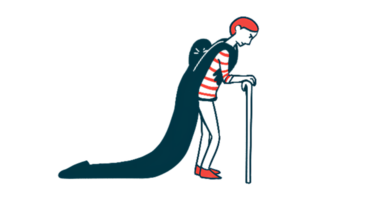Stress-reducing Activities Linked to Lower Risk of Depression, Fatigue

Multiple sclerosis (MS) patients undertaking stress-reducing activities — particularly physical and relaxation activities or meditation — at least once a week are less likely to have depression, an international study shows.
Additional links were found between physical activity and reduced risk of fatigue, and between meditation and a greater sense of control over life circumstances — a coping resource called mastery.
Meditation of at least 10 minutes, practiced even less than once weekly, was associated with a lower risk of developing depression five years later.
These findings highlight that these stress-reducing activities, even when undertaken only once a week, can help manage symptoms and improve mastery in people living with MS, which may help improve their quality of life, the researchers noted.
The study, “Undertaking specific stress-reducing activities are associated with reduced fatigue and depression, and increased mastery, in people with multiple sclerosis,” was published in the journal Multiple Sclerosis and Related Disorders.
MS is characterized by a wide range of symptoms, “including motor, cognitive, and sensory impairments, as well as depression and fatigue,” the researchers wrote. As such, the disease can have a negative impact on patients’ quality of life.
Increasing research suggests that stress-reducing activities — ranging from physical activity to meditation, yoga, massage, and participating in support groups — may ease some MS symptoms, including depression and fatigue. They may also improve mastery, which was previously shown to lower the risk of future depression.
“Understanding whether specific stress-reducing activities provide optimal benefits, minimal duration, and/or frequency of practice required, and potential basis for prevention and/or treatment of symptoms, may assist in personalised self-managed care recommendations,” the researchers wrote.
With this in mind, a team of researchers at Melbourne School of Population and Global Health, in Australia, evaluated potential associations between several stress-reducing activities and depression, fatigue, and mastery in adults with MS.
This analysis was part of a larger international study, called Health Outcomes and Lifestyle In a Sample of people with Multiple sclerosis (HOLISM), that recruited 2,466 MS patients online in 2012. In the study, patients’ demographic, clinical, and lifestyle data, as well as health outcomes such as depression, fatigue, and mastery, were collected through online, validated self-reported questionnaires every 2.5 years.
Meditation was assessed at 2.5 and 7.5 years into the study, while other stress-reducing activities, including physical, relaxation, mind-body, and spiritual activities were assessed only at 7.5 years. All assessments were related to the 12-month period preceding each of the questionnaires.
Physical activities comprised exercise/sport and dance; relaxation activities included art, music, hobbies, and massage; mind-body activities comprised Pilates/yoga and Qigong/Tai Chi; and spiritual activities included those related to faith/prayer/spirituality.
In the current study, data from 774 patients were used to assess potential associations at a specific time point (7.5 years), and results from 676 patients were used to evaluate potential links between stress-reducing activities at 2.5 years and outcomes at 7.5 years.
The mean age of the 774 patients was 48 years, most were women (81%) and had relapsing forms of MS (72%), and had lived with a diagnosis for a median of 13 years. Over one-third were overweight, and most were not using antidepressant or anti-fatigue medications.
Data were adjusted for potential influencing factors, such as age, sex, symptoms due to relapse, socioeconomic status, employment status, and antidepressant and anti-fatigue medication use, as appropriate.
Results showed that, at 7.5 years, depression was significantly less frequent among patients undertaking physical activities (by 40%), relaxation activities (by 23%), and meditation (by 30%).
Meditation-related benefits were observed for practice frequencies of both less and more than once a week and for session durations of up to 20 minutes.
At 7.5 years, patients undertaking physical activities in the previous year were also 19% less likely to have fatigue, while those who practiced meditation were 17% more likely to have greater mastery — more so if it involved sessions between 11 and 20 minutes (21% higher chance).
No associations were found for other stress-reducing activities.
In addition, practicing meditation was significantly associated with a 41% lower risk of developing depression five years later, but no other significant links were found for future fatigue or greater mastery.
A greater effect of meditation was observed for patients who practiced less than once a week (46% reduced risk) and for those whose sessions lasted between 11 and 20 minutes (47% lower risk).
In turn, for patients with depression at 2.5 years, practicing meditation was not associated with a higher chance of becoming depression-free at 7.5 years, suggesting “a potential role for meditation in prevention of depression,” but not in its resolution, the researchers wrote.
These findings suggest that “stress-reducing, specifically relaxation and physical, activities may have utility in management of depression and fatigue in pwMS [people with MS],” but analyses of patients over time, similar to those available for meditation, are needed to confirm a cause-and-effect relationship, the researchers wrote.
“Meditation practice, as little as once weekly and for short durations, has potential to reduce and prevent depression in pwMS,” and “therefore should be encouraged for health management,” they added.
The fact that these activities’ benefits were seen even with low frequency and/or short duration “is encouraging for practical and motivational purposes, for a population known to be less active than the general population and with accessibility and psychosocial constructs potential barriers for regular activity,” the team wrote.
“Our findings may assist in developing lifestyle intervention recommendations to manage health outcomes in pwMS,” they added.






